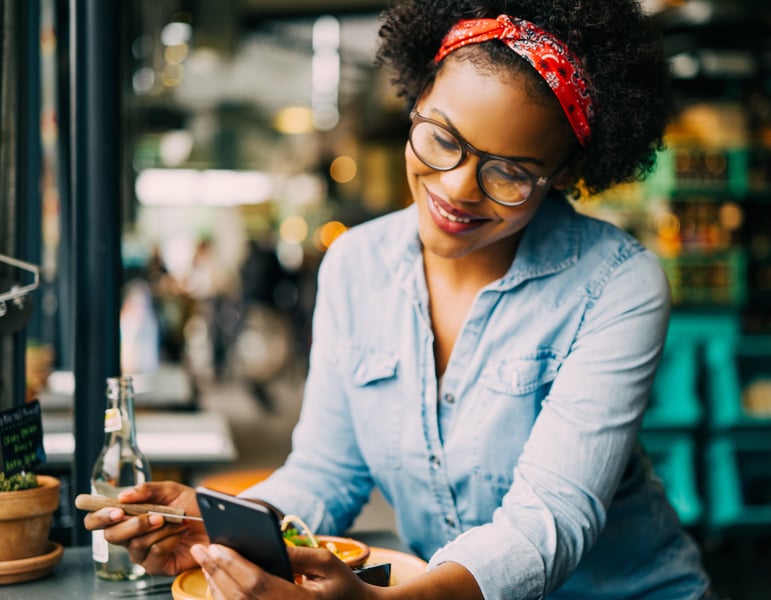unfortunately we are sorry to say that we are closing the pharmacy and your prescriptions will be sent to Walgreens starting May 30th.
Walgreens Address: 955 SE Baseline St., Hillsboro, OR 97123; Phone: 503-615-8384
Please call for any questions at 503-648-1811 Thank you.
Get Healthy!

- Posted July 12, 2022
Friends Want to Hear From You More Than You Think
If you've ever hesitated to text or email friends you haven't seen in a while, a new study has a reassuring message: They'll probably appreciate it more than you think.
In a series of experiments involving nearly 6,000 adults, researchers found that, in general, people underestimated the value of "reaching out" to someone in their social circle they hadn't contacted in a while.
Recipients, it turned out, appreciated the small gesture - often just a note to say hi - more than the sender anticipated.
Experts said the findings aren't necessarily surprising: It feels good, after all, to know someone is thinking of you and cared enough to check in.
But researcher Peggy Liu said it's interesting that the person who is reaching out often underestimates the impact doing so can have.
"We know that social connections enhance our well-being, so why don't we do it more often?" said Liu, an associate professor at the University of Pittsburgh Katz Graduate School of Business.
There may be many explanations, including hectic schedules, she noted. "But one reason," Liu said, "may be that we underestimate how much it will be appreciated."
And that text or email may be most appreciated, the study found, when it's a true surprise - when it comes from someone who is more of a casual friend, for instance.
To Liu, the moral of the story is straightforward: If a friend or acquaintance pops up in your thoughts, why not let them know?
"It's not that costly to send a text message to say, 'I was just thinking of you. How are you?'" she said.
The findings - published online July 11 in the Journal of Personality and Social Psychology - come from 13 experiments involving U.S. adults of various ages.
In most, researchers asked participants to think of someone with whom they were friendly, but had not been in contact with - in person or virtually - and then to reach out to them. That meant sending either a short message or both a message and a small gift, like a bag of cookies or coffee.
Senders rated the degree to which they expected the gesture would be appreciated, and researchers contacted recipients to see how great their appreciation actually was.
Liu's team found a consistent pattern: Senders generally underestimated the impact their gesture would have. And that was especially true, Liu said, when it was a bigger surprise - when the recipient had no reason to expect it, or when it came from someone who was not a close friend.
The findings are in line with research on other types of social interaction, according to James Maddux, a senior scholar with George Mason University's Center for the Advancement of Well-Being in Fairfax, Va.
It's been shown, he said, that people often miscalculate the reception they'll receive if they try to exchange some pleasantries with a complete stranger.
Contrary to people's expectations, the "vast majority" of those strangers respond positively, Maddux said.
There is a certain "risk," he noted, to contacting someone you haven't seen or spoken to in a while. They might not reply, which could leave you feeling rejected.
But given the odds, sending that text is probably worth the risk, according to Maddux.
"I think the takeaway from these findings is: Take a chance," he said. "It will probably be well received."
The study does address a specific scenario: People with positive relationships who've simply lost touch - not relationships that ended after a falling out. In that latter case, Liu suggested, a text message might not be so well received.
It has always been the case that people lose contact with casual friends, simply due to life changes and obligations. But, Liu said, the pandemic has altered many people's routines, so that they may still be out of touch with friends and acquaintances they used to see regularly.
"I think these findings may have even more relevance now," she said.
How important are such small moments of positive connection?
Maddux said they can act as "emotional nourishment," and other research suggests they contribute to well-being.
"We tend to underestimate the impact they have on ourselves, too," he said. "But these brief connections, even with strangers, can make us happier."
More information
Mental Health America has more on social connections and health.
SOURCES: Peggy Liu, PhD, associate professor, business administration, and chair, marketing, University of Pittsburgh Katz Graduate School of Business, Pittsburgh, Pa.; James Maddux, PhD, senior scholar, Center for the Advancement of Well-Being, George Mason University, Fairfax, Va.; Journal of Personality and Social Psychology, July 11, 2022, online







